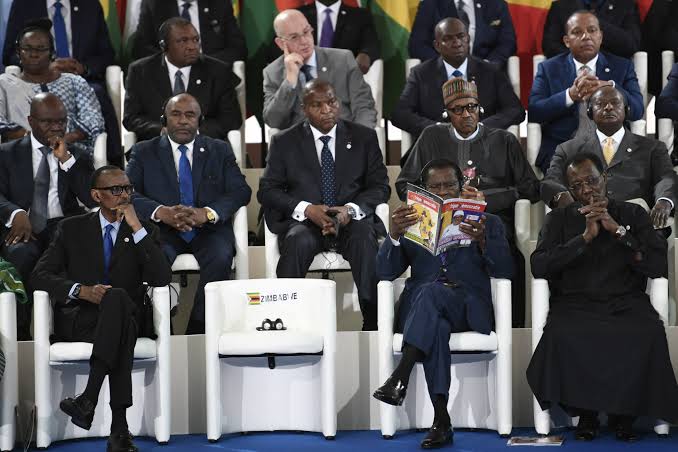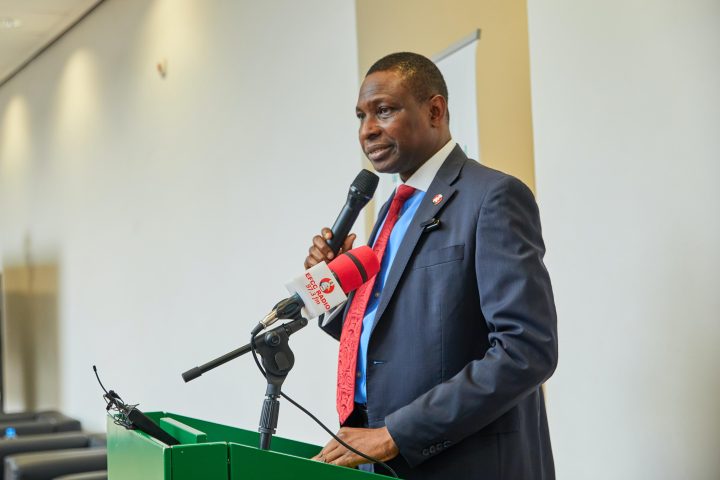African presidents are more than ever exposed to espionage, which has been part of international political activities, especially by world super powers.
The activity has been enhanced in modern times by technological advancement, especially information and communication technology (ICT).
Join our WhatsApp Channel“Spies, for centuries, have trained their sights on those who shape destinies of nations: presidents, prime ministers, kings, Craig Timberg, Michael Birnbaum, Drew Harwell and Dan Sabbagh wrote in Washington Post. They argued that the 21st century smartphones in the hands of African presidents had made spying by super powers even more probable. This, they wrote, explains the proclivity for such act.
A recent report of an investigation into the leak of 50,000 phone numbers of potential spy targets by clients of an Israeli cyber-intelligence firm, NSO Group, indicated that phone numbers of 14 heads of state, including South African president, Cyril Ramaphosa; Egyptian Prime Minister, Moustafa Madbouli; King of Morocco, Mohammed VI; Former Moroccan Prime Minister, Saad-Eddine El Ohtmani; and Former Ugandan Prime Minister, Ruhakana Rugunda were intercepted.
NSO Group developed a spyware (a software) named Pegasus, which can be covertly and maliciously installed on mobile phones and other smart devices used by people for communication, to spy on their activities without their knowledge.
The investigation which was tagged The Pegasus Project 2021, was a collaboration by more than 80 journalists from 17 media organisations in 10 countries coordinated by Forbidden Stories, a Paris-based non-profit media, technically supported by Amnesty International, who conducted forensic tests on mobile phones to identify traces of the spyware.
The names of the 14 heads of state include France’s Emmanuel Macron and Pakistan’s Imran Khan. The list also contained phone numbers of more than 600 government officials and politicians from 34 countries, the report revealed.
Inquiries into how the spyware technology operates, revealed that when Pegasus is implanted on a device, it effectively gives an attacker complete access to target’s phone. It can read messages and passwords, access social media, use GPS to locate the target, listen to the target’s conversations, and even record them. End-to-end encryption, available through popular social network apps, does not protect against Pegasus once the phone is compromised or infected by the spyware.
It is said that the spyware technology is being exploited by governments and some organisations to target mostly dissidents, activists, journalists who criticised governments of countries, among others.
For instance in June 2020, an Amnesty International report revealed that Omar Radi, a Moroccan journalist and human rights activist, had been targeted by the Moroccan authorities using Pegasus spyware before being arrested, which the authorities denied. Radi has been sentenced to six years imprisonment by a Moroccan Court on Monday, July 19, 2021, on charges of espionage and rape.
The NSO Group reportedly said Pegasus is only sold to governments of countries who go after criminals and terrorists, adding that it has saved many lives doing so. Reports indicate the firm has denied that its spyware was systematically misused.
During a weekly virtual session tagged ‘True My Eyes’ which focused on international events, international affairs expert Professor Bolaji Akinyemi who had served Minister of External Affairs and Director General of the Nigeria Institute of International Affairs, said that all African Presidents were being spied on by Super Powers for political interests. Prof. Akinyemi noted that there is so much spying all over the world, adding that he was not surprised when news of the Pegasus spyware saga broke, because spying is a usual practice by many countries, governments and organisations.
The retired diplomat, who noted that there was something else behind the Pergasus spyware unknown to the world, pointed out that for the spyware company to operate successfully in Israel, the country must have had a hand in it and it must be beneficial to them.
“I can sure you, there is no way an organisation dealing in spyware being sold to governments and agencies will be allowed to operate in Israel without Mosad (a national intelligence agency in Israel) having its fingers in it. Israel knew what was going on all the time,” he concluded.
Recently, there were reports that Rwandan government had access to the spyware, which it used to target critics who it considered threat to the government. But the Rwandan government denied having access to the technology.
The spyware, which was named after the mythical winged horse, Pegasus operates on iOS and Android operating systems.
In 2019, it was mired in controversy when it was sued by Whatsapp for allegedly hacking activist’s phone and snooping on them.
Currently there are calls on Israel to regulate how the software is made available to people outside the country, as such has security implications on the target organisation, government or individual.
Victor Ezeja is a passionate journalist with seven years of experience writing on economy, politics and energy. He holds a Master's degree in Mass Communication.
















Follow Us